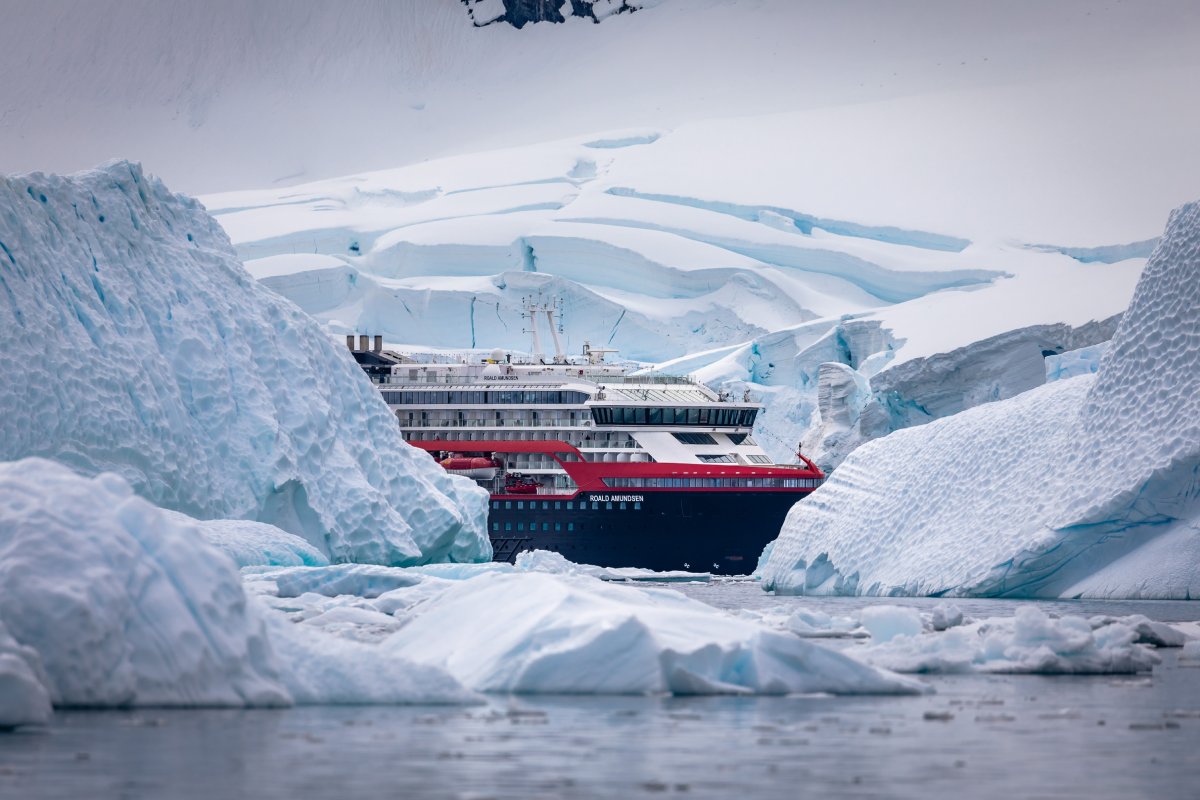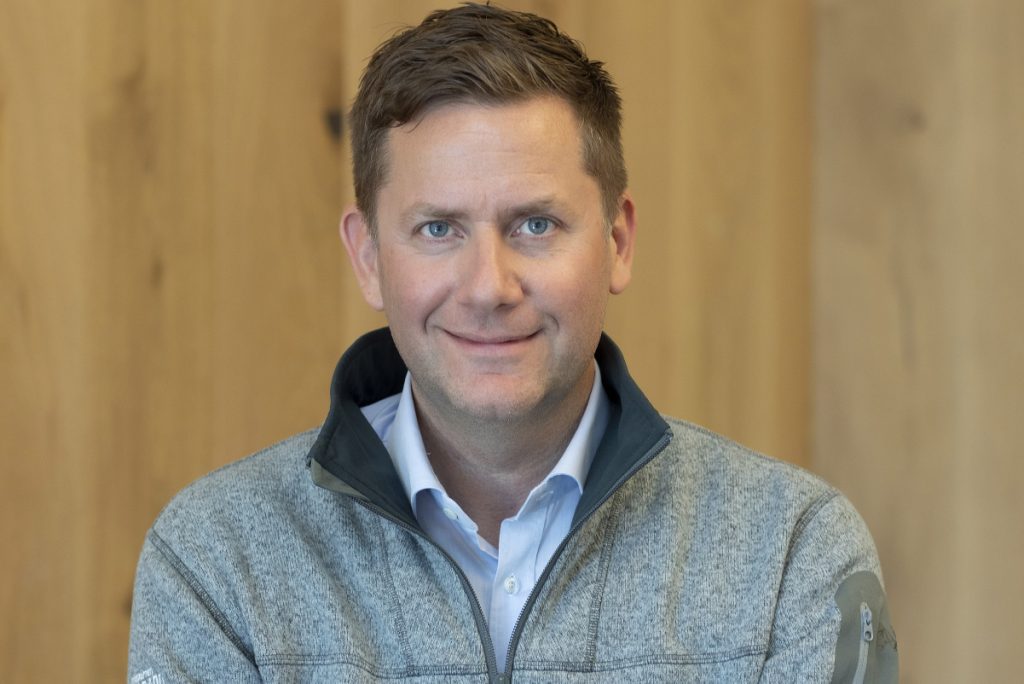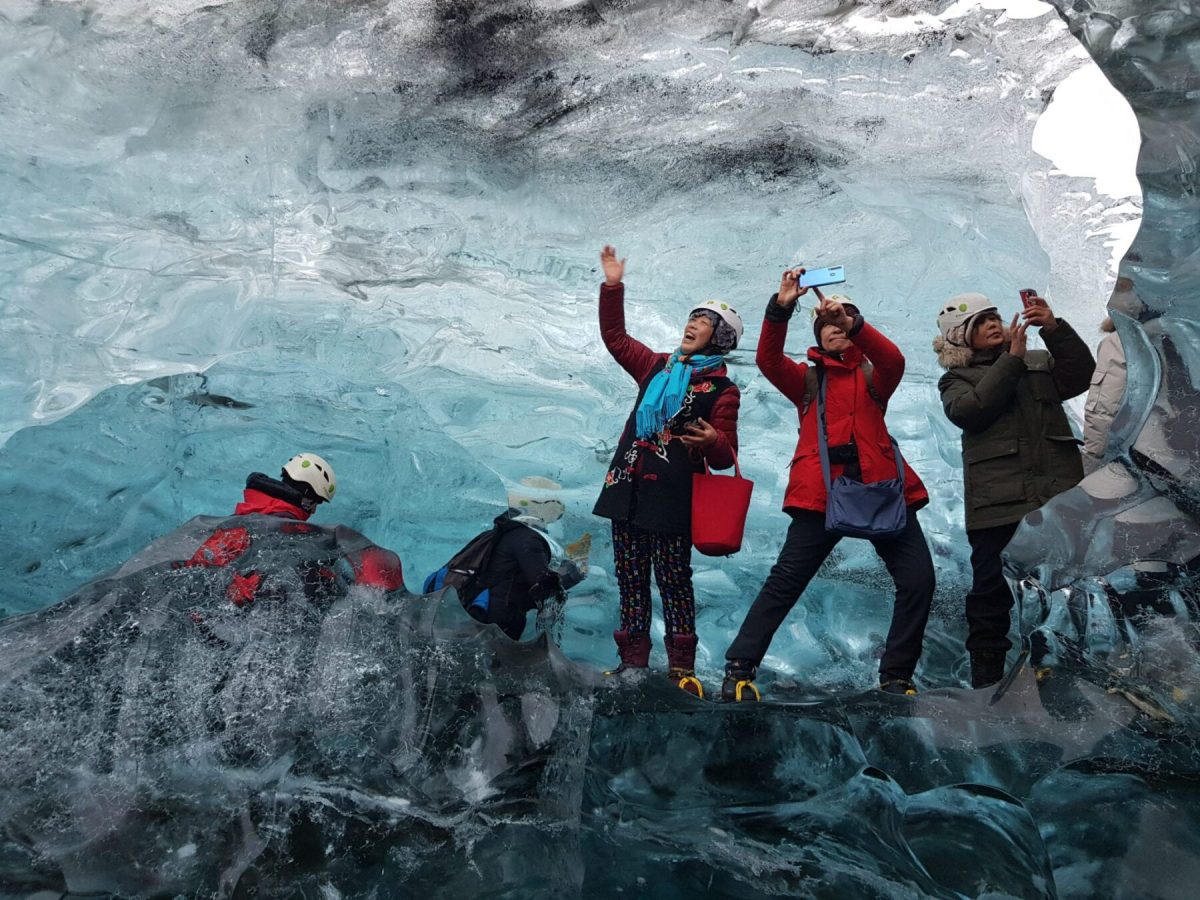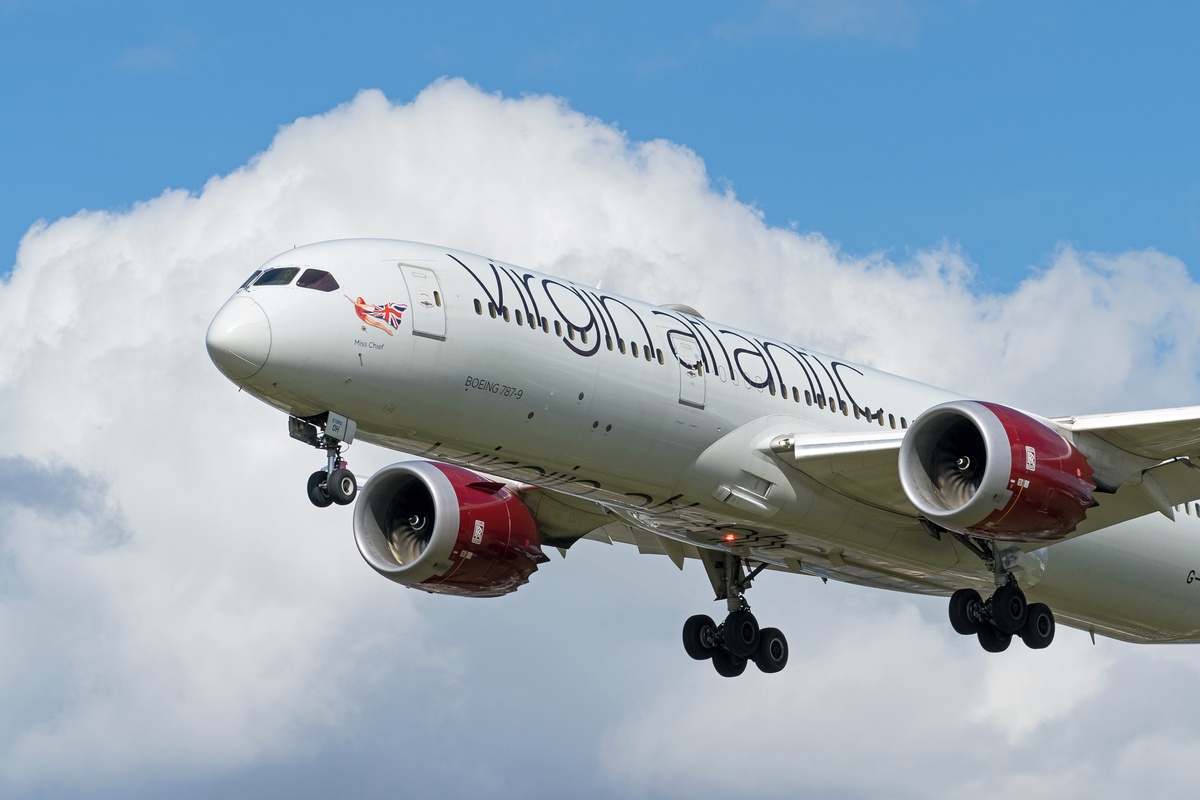Norway's CEO Evangelist for Electric Cruise Ships

Skift Take
Hurtigruten Group, a Norway-based cruise and transportation company, launched the world’s first battery hybrid-powered cruise ship, MS Roald Amundsen, in 2019 and has been slowly phasing the tech into its cruise line. While electric cars and now airplanes dominate the news of the technology in travel, Hurtigruten's leadership is a welcome sign for a cruise industry that often finds itself in the crosshairs of environmentalists.
The company's Hurtigruten Expeditions now has three in its fleet, including MS Fridtjof Nansen, which has been labeled as the safest and most sustainable cruise ship in the world by Scope ESG Analysis, a credit rating agency.
While other cruise operators experiment with biofuels as an alternative to fossil fuels, Hurtigruten, which is over 100 years old, is focused on electric. The idea for the technology was inspired by the use of batteries in Norway’s ferry sector, Tesla and Toyota Prius, according to Hurtigruten Group CEO Daniel Skjeldam.
In this conversation with Skift's Dawit Habtemariam, Skjeldam talks about costs, technology, results, and the motivation in building an hybrid electric cruise ship. The comments have been edited for length and clarity.
Skift: So tell us about your hybrid ships and how it fits into your sustainability strategy.
Daniel Skjeldam: We built the world's first factory of hybrid forward cruise ships Roald Amundsen delivered in 2019, Fridtjof Nansen in 2020.
We retook that thing over all the vessels with high end technology. So we now have one other ship in the expedition fleet already retrofitted. We are retrofitting three other ships in the coastal fleet to batteries. Completely new propulsion systems, taking down CO2 emissions with more than 25%, and NOx emissions with more than 80%. We were the first to ban single use plastic. We've been campaigning to get rid of heavy fuel oil. Most ships in the cruise space today operate on heavy fuel oil. We stopped using that toxic form of fuel in 2008, even if it costs a lot more.
So it's these technological initiatives, but it's also social initiatives to purchase locally in the places we sail to, hire locally in the places that we sail to, and setting very, very high targets on how to get zero emissions. The latest, really big initiative we've done is to launch a project earlier this winter or nine months ago called Sea Zero. And that is a project that wtill create the first zero emission ship for Hurtigruten Norway. And this sets an ambition to have that on the water in 2030 which is pretty much right around the corner. And we strongly believe sustainability is a key driver for our guests. It's a key driver for the regions with sailing. And we've set our eyes on really, really being the driving force and not only the cruise space but also the wider travel industry on driving sustainable travels.
The reason why we are so focused on this is that a lot of our operation has historically been around the poles, both in the south and in north. And that's where you see the effect of climate change the earliest. I mean personally, seeing the melting glaciers, seeing the changing weather conditions in the high north. It is scary. Longyearbyen didn't use to have any form of issues with temperatures variating during the wintertime. It used to be a very stable cold winters. Now you suddenly have days in the midst of the winter with plus temperatures in celsius and it's never happened before. The Fjord that used to be covered with ice are not covered in ice anymore, it's open. And that affects animal life because it makes the hunting for some animals much, much harder because they cannot catch what they need to eat from the ice anymore. And that's just on top of that. You have all the pollution on the beaches. It's some sad sites unfortunately around and that's what awakened a lot of the people in our company.
Skift: What have been the results of the hybrid tech?
Skjeldam: Yeah, so these two hybrid ships, we took delivery right before Covid unfortunately. And the last one literally was on the test sailings until Covid hit. But now we got quite a few years behind us with good operation. So the guests absolutely love the product that we can turn off the engines and run only on batteries when we're close to animal life and in scenic places. It is such a quiet ship. And of course it reduces fuel consumption significantly, which is the direct link with emission. But it also cost more today.
Skift: What are the costs to build it?
Skjeldam: So the battery packs aren't cheap and also we retrofit this technology to all the vessels in the fleet. It is a significant cost. We're investing over, last year, this year, and next year, we're investing up to a 150 million euros in retrofitting all the vessels, and that's the euro and dollar on par. So it's a $150 million bit this technology. So what we'll take is, it'll make the trips a little bit more expensive, but we also think people are willing to pay for that when they are traveling to these kind of destinations.
And we're also pushing for stronger regulation because we see that a lot of other players in the cruise industry don't necessarily make these investments until they're forced to which is a bit sad because I'm not that strong believer in regulation. I think business should drive development, not regulators. But when business aren't able to drive in the right direction, we also need regulators to pitch in. And typically in this industry you'll see cruise ships with two tanks. One with marine gas oil which is a more expensive, less polluting diesel and then one tank with heavy fuel oil. And what they do is that when they come into an area where you have to use marine gas oil, they switch from the heavy fuel tank that's really cheap to the more expensive, less emission marine gas oil tank. And that's the sad truth about the industry state today.
Skift: Can you expand on that?
Skjeldam: So a lot of greenwashing and it's picked up speed since Covid. I mean in '18, '19, the industry didn't even bother to green wash. They didn't want to talk about it. Whereas now the interest around this topic is so intense in many places that the industry can't hide and they need to discuss it, but it's unfortunate that it's a lot of wind.
Some of the operators are now starting to disclose more information which is a good thing. Some even have sustainability reports, we of course do. So you really can find this information but what we see unfortunately is that they like to speak about the one ship that does something completely different than two ships, not the hundred ships who run on heavy fuel oil which you could change tomorrow and reduce emissions massively. So we are pushing for regulators in Europe to ban heavy fuel oil. We were successful with the Norwegian government banning heavy fuel oil to Svalbard and the Norwegian coast. This is because we think it's completely wrong that you should be able to operate this toxic fuel in beautiful natural areas. So it's both, we want to lead by example doing the investments, finding the new technology, but we also want to push when we are there for actually regulations to come into place that won't allow operators to not use the green solutions.

Skift: Why'd you pick electric over the other alternative energy sources?
Skjeldam: So we believe there will be new fuel forms coming that will eventually take us to zero emission. On the ship that we're planning to build on the coast of Norway, we have the luck for being close to the coast all the time and we definitely believe batteries will be an important part of the technology on that ship, on our expedition ships, so it's much further away from infrastructure on land. We are looking currently at what is the future of fuel form for those ships to get to zero emission. That technology is not there yet. We can't order a zero emission ship today even if you want them to. But we're spending a lot of resources looking into what's the new technology. Is it possible for us to get a zero emission ship by 2030 for our expedition offering? We don't think so. We think it might be later. But it is possible to get to 80, 90% reduction in emissions.
Skift: How are you measuring your emissions?
Skjeldam: So typically, we measure both CO2 and NOx as the main components of our emissions. But it's also other things like cleansing systems on board for gray water, black water, food waste that is key to our offering, reducing food waste as much as possible. Having these systems on board that doesn't let anything else than a drop of water leave the ship and sending it through several cleansing systems so it comes out actually drinkable.
Skift: I feel like one thing you often hear from suppliers is sustainability gets compromised when it comes to guest experience and cost. Based on what you're saying it's the guest experience is …
Skjeldam: I'd say better. it's definitely making the guest experience better because first of all it's less polluting noises but also it makes people feel better. When they're in these marine areas, you just don't want to be on board an operator who doesn't take this seriously. So it just makes you feel bad as a guest. So I'd say it's absolutely positive on all sides. But the reason why the uptake of this technology is slow is because of price. That's what's holding it back.
But our belief is, as I said, that I think we need, in all areas of tourism, especially tourism that moves, like cruise ships, or airlines, ferries, I think we just have to accept that it will need to be more expensive going forward and that's price we need to pay to be able to keep tourism for the future because overly the sustainable tourism is a fantastic contribution to communities creating jobs and it's renewable forever, if you take well care of an area or a community or the nature. But bad tourism destroys places and in order to get good tourism, we need to pay more for these kind of products because operators like ourselves need to invest in the technology, needs to invest in the green form of fuels and that could really push the price up and I think that needs to happen in many, many places of tourism.
Skift’s in-depth reporting on climate issues is made possible through the financial support of Intrepid Travel. This backing allows Skift to bring you high-quality journalism on one of the most important topics facing our planet today. Intrepid is not involved in any decisions made by Skift’s editorial team.




